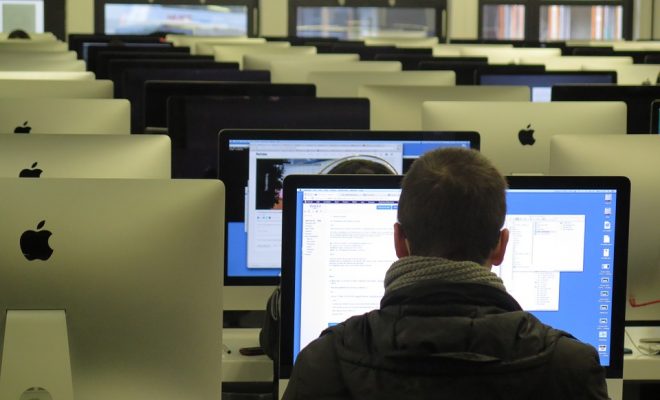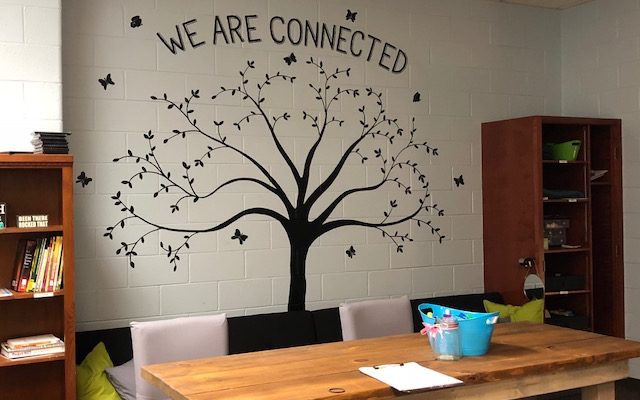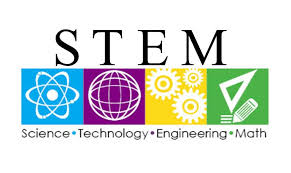Why PBL is the Future of SPED Education

A high school special needs teacher explains how she is making project-based learning work for students with a range of abilities.
By Jill Koenemann
At a PLC meeting last year, my colleagues and I started talking about how to teach 21st-century skills like collaboration, critical thinking, and problem-solving in a classroom where students have a range of abilities. We were looking for a curriculum that would help students connect what they were learning with their own lives.
The conversation quickly shifted to project-based learning (PBL). This approach suits children with learning difficulties because it allows them to work at their own levels of differentiated learning. For collaborative projects, teachers can pair higher- and lower-functioning students, who will then work together to accomplish a common goal that is often bigger or better than what they could have done on their own. And PBL can be fun: students have the opportunity to collaborate with their friends and share their final project at the end!
It’s one thing to talk about changing the way you teach, and another to actually try a new approach in the classroom. I was new to PBL, and setting up projects that would engage my students was a challenge. To be honest, I had some trouble setting up my first project, and as a result my students got impatient. I wasn’t ready to throw in the towel, though. In fact, I was even more committed to improving on our next project.
Connecting Learning to Real Life
For my second project, I included six special needs students with varying disabilities. It focused on the challenging topic of survivor’s guilt. We started by reading the short story “The Seventh Man” by Haruki Murakami, which is about a man whose best friend dies when he was 10. In the story the man tells how he dealt with survivor’s guilt and PTSD for the rest of his life. We tied this story in with an op-ed entitled “The Moral Logic of Survivor Guilt” by Nancy Sherman, as well as coverage about the Parkland school shooting and how those kids had to return to school without their friends. The goal was for the students to create a visual representation of how the two stories connected and how they were different, to see how fiction and non-fiction go together.
I didn’t set out to make this project such an emotional one, but the shooting in Florida happened to coincide with us starting a unit called “Survival,” and this project brought our class together at a difficult time.
Facilitating Collaboration
Using a visual collaboration platform called Project Pals, students structured their thinking, collaborated on ideas digitally, and constructed argumentative essays. Working this way also supported our pedagogical shift towards infusing technology into all of our lessons, following the SAMR Model. For this project, students gathered all of their resources and put them in the platform to produce something that was much more than a pencil-and-paper report. Not only did the platform guide me through the process, their team was generous with their time and collaborated with me to ensure this project would be an improvement from the last. While I was still a bit apprehensive, I was extremely excited to dig in with my students. Here’s a link to a video explaining how I got started with my Project Pals project involving survivor’s guilt.
The results of our project have been nothing short of astounding. The essays and projects submitted by my students were fantastic; I attribute this sudden increase to the power of connecting learning with real life, providing students with the opportunity to collaborate in a controlled environment as well as my shift to a PBL approach.
Keys to Getting Started with PBL
Now that that I’ve gotten through this project and another one about World War I, I’m excited to pass on what I learned from the process with three local special needs teachers so that we can begin using PBL in more SPED classrooms. Here are some of the best practices that I’ll share with them about getting started with project-based learning:
- Get involved with a supportive group of people. Collaborative teaching supports collaborative learning!
- Choose a platform with strong customer support, because PBL can be daunting at first. If you’re new to PBL like I was, consider looking for a platform that will help you design your first couple of projects.
- Visualize the process of how to structure each project before you get started.
- Time is an issue for every teacher. Use PBL to work smarter, not harder.
- Start with a short project and work your way into a larger project. This is mostly for teachers’ benefit, since kids pick up technology so much faster than adults.
PBL certainly took some getting used to, but I firmly believe that it is the future of SPED education, because these kids need 21st-century skills to succeed in school and in life.
Jill Koenemann is a high school special needs teacher in Monroe ISD. She can be reached at [email protected].




